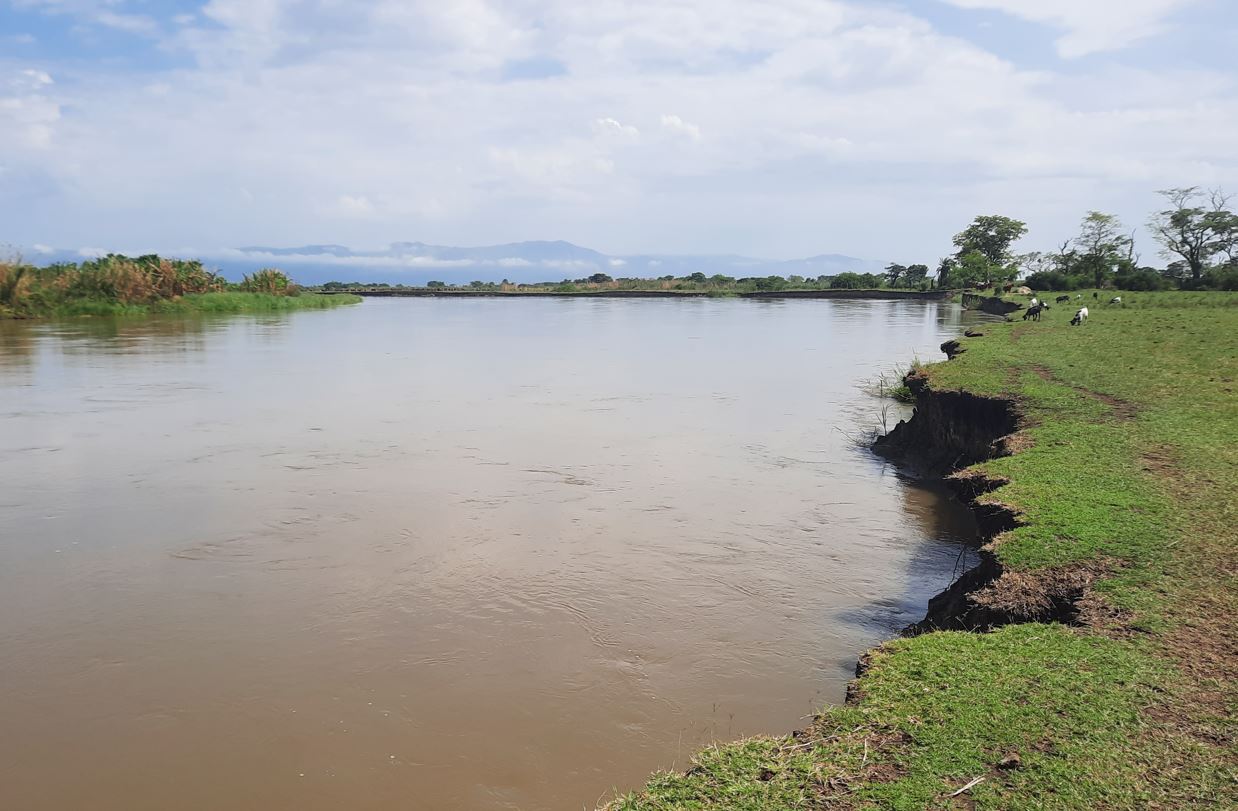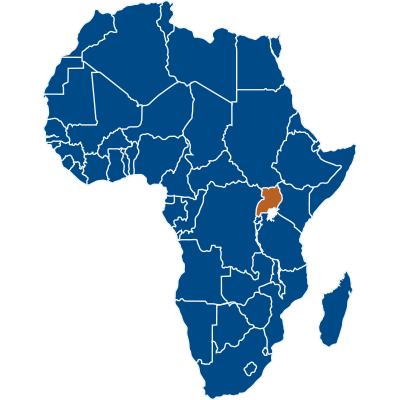The Mpanga River rises in the Rwenzori Mountains, flows past the town of Fort Portal and empties into Lake George. The Semliki rises in DR Congo, partly marks the border with Uganda and flows into Lake Albert. The catchment areas are located next to each other, in western Uganda.
Agriculture has disastrous consequences for nature: more and more trees are being chopped down to make way for fields and livestock. In addition, agricultural activities also lead to erosion. Bare soils are more susceptible to erosion, and cows can destroy riverbanks when they come to drink. This erosion does not seem bad, but it is very problematic: an enormous amount of sediment, including dirt and sand, enters the river and pollutants (such as pesticides) attach themselves to the sediment grains. A lot of sediment not only increases the costs of purifying the water into drinking water, but also kills animals and plants in and around the river.
The rapid growth of the city of Fort Portal is increasing water pollution and deforestation, adding to the list of challenges.

What we do
Together with the Ugandan organisations NRDI and JESE, we are committed to protecting water resources. A selection of our activities:
- We plant trees, which strengthen riverbanks and slopes, making them less likely to erode.
- We are looking for solutions (for example drinking troughs) so that cows no longer come to drink from the river, and to prevent erosion of the banks.
- We promote agroforestry, an agricultural technique in which not only crops but also trees are planted. They keep nutrients and water in the soil.
- We lobby for the protection of water resources with national and local governments.
- We protect wetlands, by reducing the impact of local agriculture and having existing legislation translated into local languages and distributed via radio messages.
- We set up initiatives to clear up around the Mpanga River in Fort Portal.
- We are building ecological toilets so that people no longer defecate in the open air and no longer contaminate water resources.
These initiatives are part of a broader program in Uganda that aims to keep clean and sufficient water available for people and nature alike. It focuses on protecting water resources, access to drinking water and sanitation, and water for food production.


